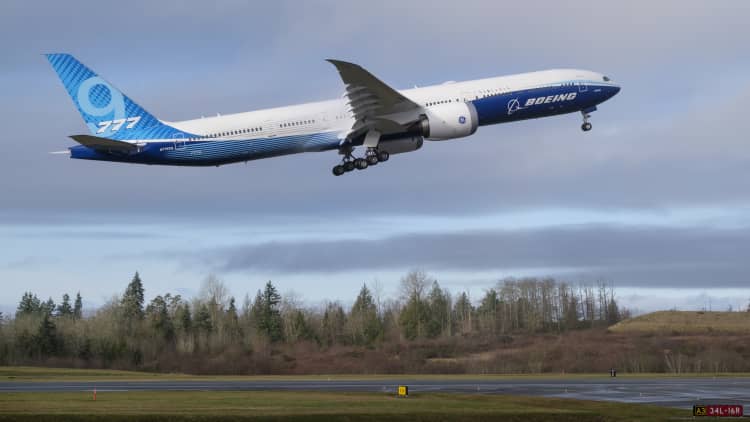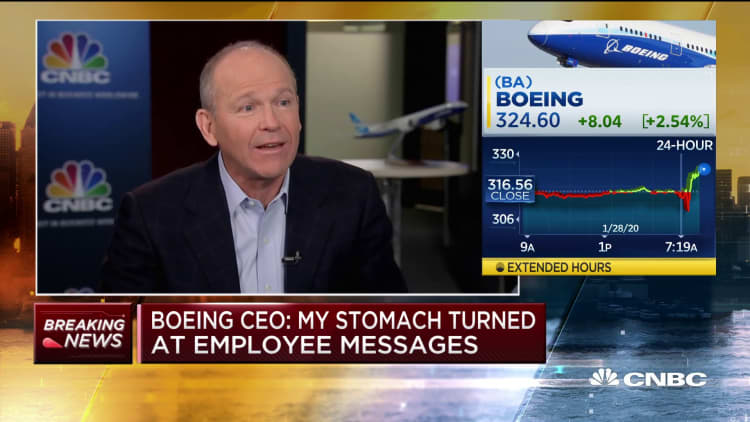
Boeing on Wednesday reported its first annual loss in more than two decades as costs from the 737 Max crashes rise sharply and outlined challenges from the worldwide grounding of its bestseller that will last for more than a year.
Boeing said it lost $636 million in 2019, marking the company's first annual loss since 1997. That's in stark contrast to the $10.46 billion profit it posted in 2018 — months before a second crash grounded its bestselling planes worldwide.
The manufacturer this month suspended production of the planes, which regulators grounded in March after the second of two Max crashes that killed 346 people. The company has been hobbled by the crisis and it's struggling to regain public and regulators' confidence after the fatal crashes and troves of emails showing its own employees boasted about bullying regulators, while others expressed worries over what they described as lax safety standards.
"My stomach turned" from the messages, new Boeing CEO Dave Calhoun said Wednesday in an interview on CNBC's "Squawk Box." "The language is horrible" in those messages.
Calhoun, who took the reins earlier this month after the company's former CEO was ousted after a worsening relationship with federal regulators, reiterated that he expects sign off on the planes by midyear, but the FAA has said it could come before that. A 10-year Boeing board member and former Blackstone Group and General Electric executive, Calhoun brushed off suggestions that he was an insider in the company who was aware of Boeing's cultural problems.
The debacle's costs to Boeing are rising to more than $18 billion, the company said, roughly double what it outlined in the previous quarter. That amount includes an additional $2.6 billion pretax charge to compensate airlines and other 737 Max customers because of the grounding. Boeing had taken a $5.6 billion pretax charge in the second quarter to compensate its customers.
The company recently reported its worst annual sales figures in decades and it handed the crown to the world's biggest aircraft manufacturer to its rival, Europe's Airbus.
In its earnings statement, Boeing reported a loss of $2.33 per share for the fourth quarter, compared with adjusted per-share profit of $5.48 a year earlier. Revenue in the last three months of the year dropped 37% to $17.91 billion from $28.34 billion in the year-earlier period.
Despite the bad news, Boeing's shares closed up 1.7% on Wednesday, a sign investors were relieved charges weren't higher and that the company provided clarity over its new cost projections.
"We think it's fair to assume to some degree that 4Q19 was a clean-up quarter for new CEO, David Calhoun," said UBS analyst Myles Walton in an email.
But Boeing's problems aren't just limited to the 737 Max. The company plans to reduce production of its wide-body 787 Dreamliner planes to 10 a month from 12 next year, an announcement that came just months after Boeing disclosed it would lower the rate from 14 to 12.
There are also longer-term challenges. The company is reassessing its next plane, dubbed the NMA, or "new middle-market airplane," a jetliner whose size fits between the 737 narrow-body and the larger wide-body 787 and 777 planes that serve long-haul international routes. As Boeing has been hamstrung by the crisis, its rival Airbus has gained orders for hundreds of long-range A321 planes.



